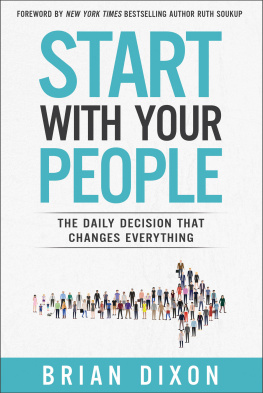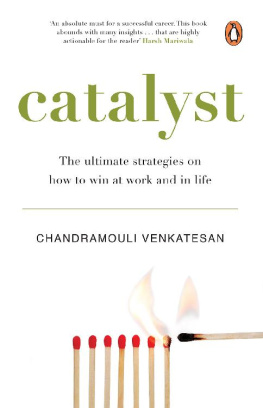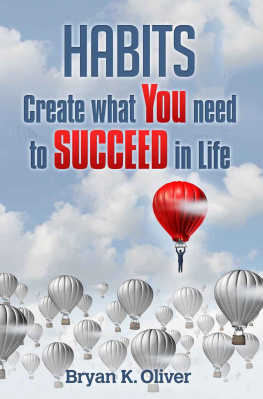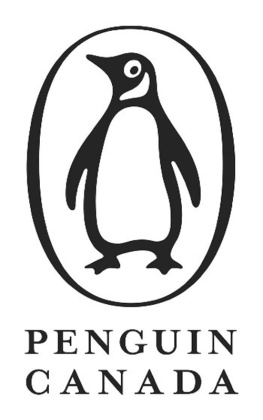To Asian Paints, Onida, Cadbury/Mondelez, Pidilite and all the people in those companies who helped me get better.
And to the readers of Catalyst for believing in me.
Advance Praise for the Book
Mouli provides a thought-provoking, insightful construct on a topic that I have seen him continuously address over his career. Lucid, practical and logical, this book is a great guide on getting better, every dayBharat Puri, managing director, Pidilite Industries
I have heard of Kaizen and continuous improvement for machines and processes and always wondered why there was no Kaizen process for human beings. This book is the answer to that. Mouli gives you the tools and techniques you require to accelerate your get-better journey. If you want to succeed, stop thinking about success and start thinking about getting betterHarsh Mariwala, chairman, Marico Ltd
You dont grow in an organization by just delivering results. You need to continuously get better. Moulis book makes you realize that and gives you the strategies to get better. Read this book to get an interesting perspective on personal growthPiyush Pandey, global chief creative officer, Ogilvy and Mather
Everyone wants to get ahead; a few want to get better. The ones who get better always get ahead. Moulis book tells us how all of us can get betterShiv Shivakumar, group executive president, corporate strategy and business development, Aditya Birla Group
Moulis book shines the light on a critical difference that separates those who succeedtheir ability to constantly get better. Far too often we focus on extraneous labels of success, rather than going to the core issue of continuously improving ourselves, which leads to success. I encourage readers to not just read this book but also internalize the concept and apply it consciously. Get Better at Getting Better has the potential to change you for goodand make you the best that you can beAnand Kripalu, MD and CEO, Diageo India, and member, Diageo Global Executive
During my long corporate career, I have seen success and failure around me. There is no magical formula, but there can be experiential insights. Understanding and providing a distilled method to success is like a compass. It is very useful to have, so get hold of a compasslike this bookR. Gopalakrishnan, author and corporate adviser
Moulis latest book, Get Better at Getting Better, is an ideal sequel to Catalyst which gave readers an excellent overview on how to plan a corporate career and how to make it big in the second half by preparing for it in the first half. This book delves into the complex subject of how and why some people succeed more than others despite putting in the same effort. The book, besides being invaluable for corporate careers, will also be extremely useful to HR managers whose job he describes succinctly as helping people succeedSam Balsara, chairman, Madison World
In my years as a consultant at Bain & Company and now with the Godrej Group, my observations resonate with Moulis powerful insights and conclusions. The most successful people are those who are able to continuously improve themselves and get better. In this book, Mouli lays out a powerful approach for kick-starting your get-better journey. A must-readVivek Gambhir, managing director and CEO, Godrej Consumer Products Limited
I want to congratulate Mouli for producing yet another insightful book on personal development for future leaders who are seeking sustainable success in their careers. I love Moulis approach of building a simple yet powerful model for getting better in life through a systematic inquiry. Effort is not the only means to your success but need to be supported by a Get-Better Model. I recommend this to all those who are in the early stage of their careers as this book may inspire you to get to the next stage of the success ladder and potentially prevent career derailersAnnaswamy Vaidheesh, vice president, South Asia, and managing director, GlaxoSmithKline Pharmaceuticals India Ltd
1
Introduction
I have spent the bulk of my twenty-eight-year career in sales and marketing. However, for three years in the middle, I performed a cross-functional role as the head of HR for what was then Cadbury India Ltd (now Mondelez). In that role, it was important for me to define the purpose of HR for myself, and I defined it as helping people succeed. Each function does something to help the overall business succeedmarketing helps the business succeed through great branding and innovation, while procurement helps by getting the necessary material at the lowest cost and at the highest quality. When I thought about how HR helps the business succeed, it was obvious to meHR helps by making the people who work in the business succeed. If a lot of people in a company succeed, then the company will automatically succeed, hence my definition of the HR role as helping people succeed. However, this threw up the question What makes people succeed? Why do some people succeed, while others find it very difficult? Why do some people, who are doing moderately well, suddenly hit their take-off point and become wildly successful? Why do some people get stuck and make no progress at all, no matter how hard they try? These are difficult questions to answer. Why and how people succeed is a complex topic with no clear answers and the quest to understand that topic has possessed me for many years now.
The quest to understand this topic led me to write my first book, Catalyst. The book was considered very successful and most readers felt like they had started to understand the success model better. The success of the book and the positive feedback, while being very satisfying, also told me that this was a topic people were hungry to get insights into. We are a population that is working very hard to succeed. Sometimes, it is frustrating to us that there are no clear models and frameworks that can direct our efforts more productively. Hence, while I knew that with Catalyst I had made a very meaningful start in trying to provide a perspective into that space, there was still a long way to go. I knew the onion had to be unpeeled further, questions explored to greater depths and newer insights required, to illuminate this space to a greater degree. It is to this summit that my journey continues with Get Better at Getting Better; I hope it will continue beyond that as well.
While we move beyond Catalyst with this new book, my model of gaining insights and exploring the territory of success remains the same as the one I had adopted for my first bookself-awareness, analysing myself and observing others. I tried to understand my own life and career betterwhy was I successful at some points and less so at others. I observed others keenly, trying to understand why some people succeeded, what drove them and what they did or possessed that was different from others. The success of Catalyst also resulted in many people having conversations with me on this topic and helping me understand the questions and issues they were grappling with. The oft-repeated refrain was, I am trying hard, putting in all the effort I can, but I am not succeeding. Explaining the lack of success when people slack off and dont work hard is easy, but life feels unfair when you put in the work but dont get the success that effort deserves. I was quite keen to try to help these people, as well as assist the already successful in accelerating their growth.











